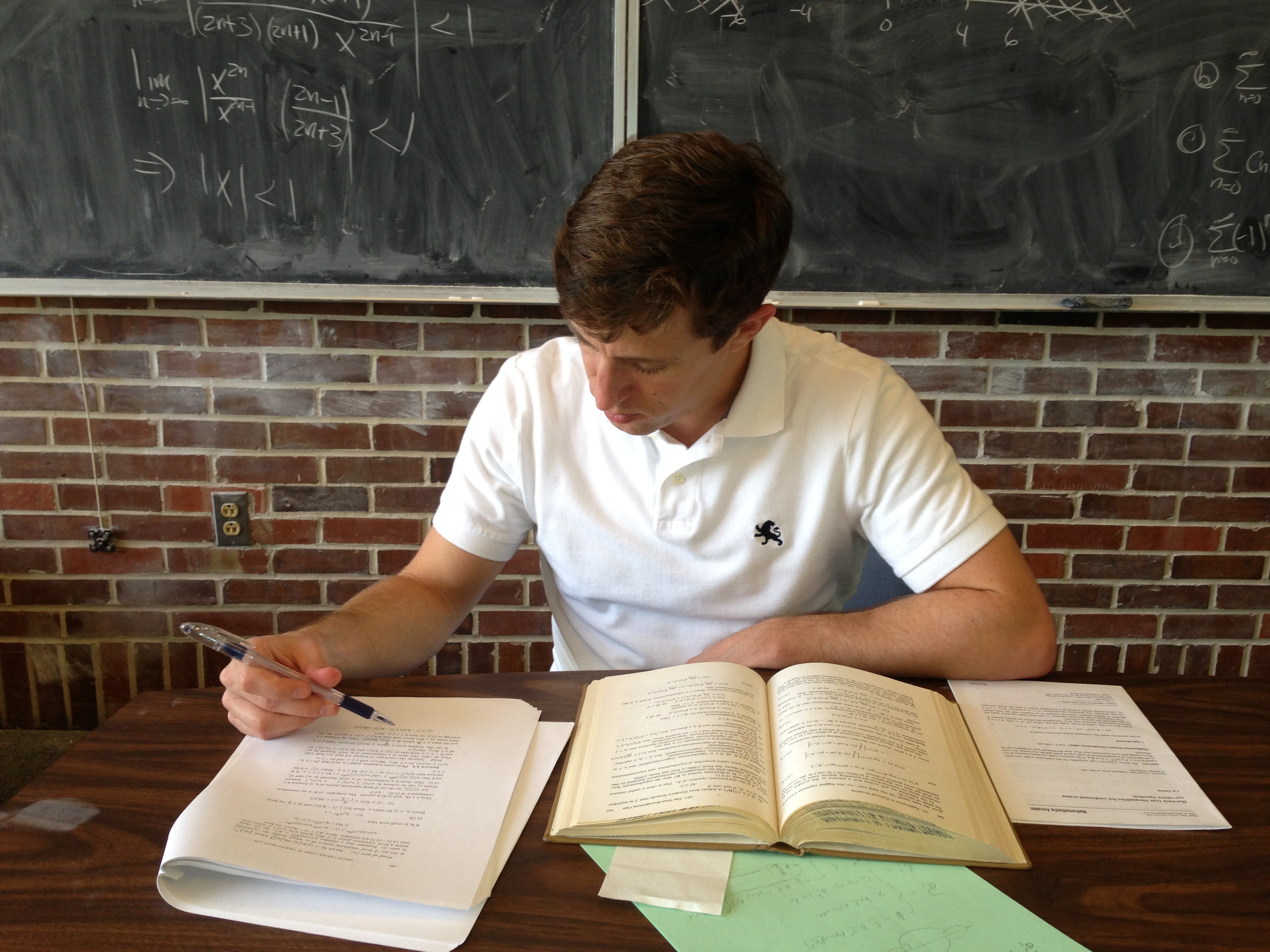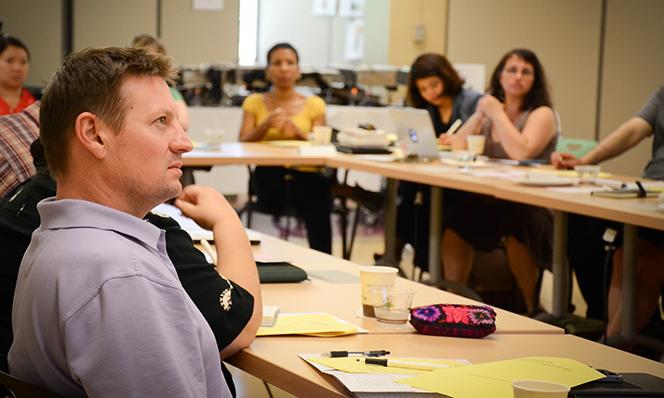Interested in utilizing Dr. Thomas Sura’s One Minute Paper in your classroom? Here is a brief instructional video detailing how to implement it. This is a great way to foster reflective thinking in your students concerning their own writing practice, and has the added benefit of allowing you instant feedback on your own teaching practices!
Tag: faculty writing support
Looking for a new way to foster discussion in your classroom? Try this sticky note exercise! This highly adaptable exercise allows for meaningful discussion, while the anonymity of it allows students the freedom to express their ideas. Try using this method to discuss writing in your classroom, and see what new revelations your students come to.
by Caitlin Holmes and Caitlin Dungan
On Friday, April 24th, Mason’s Writing Across the Curriculum invited three experts on academic publishing to present on crucial information for writing and submitting book proposals. Our panelists, Dr. John Farina, Dr. Peter Stearns, and John Warren (click here for full biographies), provided thoughtful and supportive advice to attendees before workshopping proposals. Here, we will summarize a few key points that our presenters discussed, our tweets of the event (see the full Twitter feed here), and one presenter’s handout at the end of this piece.
by Jenae Cohn
Jenae Cohn is a PhD candidate pursuing a Designated Emphasis in Writing, Rhetoric, and Composition in the English department at the University of California, Davis. She is a graduate writing fellow through the University Writing Program’s Writing Across the Curriculum program and her research interests include digital rhetoric, materiality, and the history of the book. She can be contacted via e-mail, Twitter, and her personal website.
Never before had I seen an article filled with more numbers than words on one page. I was in the second-year of my PhD program in English and was working as a graduate writing consultant (“tutor”) through my university’s Writing Across the Curriculum program.
As someone who had trained as a tutor in an undergraduate writing center in college, I knew the techniques for skimming a long paper, seeking out the main points, and identifying the areas of higher-order concerns. In college, I had dealt with a variety of papers from disciplines across the curriculum, operating under the assumption that, as Pemberton (1995) puts it, “many aspects of text production… are ‘generic’ in nature and, for the most part, extend across disciplinary boundaries” (p. 367). Yet for the first time, I was confronted with the fact that there were disciplinary differences – and big ones – that I had never encountered before. I didn’t know what to do. After all, I was new to WAC as a pedagogy to use in tutoring and I didn’t thinking that my writing center knowledge alone was enough to equip me for the new challenges of reading and commenting upon the conventions of academic disciplinary prose at the graduate level.
by: Caitlin Holmes
Caitlin Holmes is the Assistant Director of Writing Across the Curriculum at George Mason University. She blogs regularly about teaching here at thewritingcampus.com. You can reach her via email at [email protected].
With the support of Mason’s Provost Office and Center for Teaching and Faculty Excellence, the Writing Across the Curriculum Program hosted two Faculty Writing Retreats in the past 12 months: one in May 2014 and the other in January 2015. Such retreats had occurred in the past under the supervision of the Northern Virginia Writing Project, but not for quite some time. This blog post will review the different structures of the May 2014 and January 2015 retreats, give summaries of evaluation results for both retreats, and provide a few concluding thoughts about what we may try in the future at Mason.



